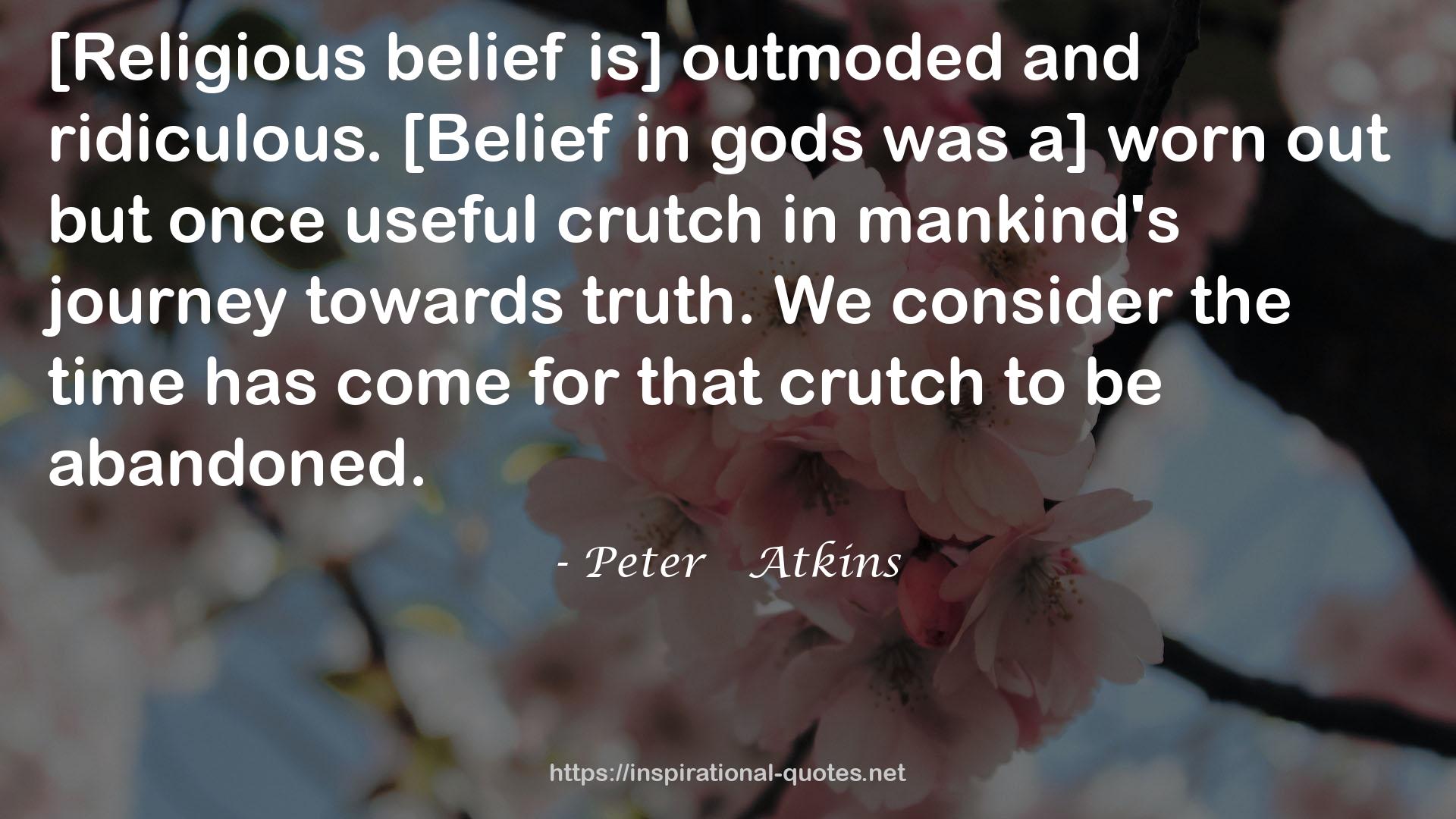Peter Atkins QUOTES
3 " [Religion is] a fantasy [and is] completely empty of any explanatory content. It is also evil. "
9
" [Religious belief is] outmoded and ridiculous. [Belief in gods was a] worn out but once useful crutch in mankind's journey towards truth. We consider the time has come for that crutch to be abandoned.
It is a vacuous answer... To say that 'God made the world' is simply a more or less sophisticated way of saying that we don't understand how the universe originated. A god, in so far as it is anything, is an admission of ignorance.
Religion utterly failed to provide an explanation of the biosphere other than that 'God made it all'. Then Darwin thundered over the horizon and in a few decades of observation and thought . . . arrived at an answer.
I regard teaching religion as purveying lies. I came here today to de-corrupt you all. "
13 " The first law is essentially based on the conservation of energy, the fact that energy can be neither created nor destroyed. Conservation laws—laws that state that a certain property does not change—have a very deep origin, which is one reason why scientists, and thermodynamicists in particular, get so excited when nothing happens. There is a celebrated theorem, Noether’s theorem, proposed by the German mathematician Emmy Noether (1882–1935), which states that to every conservation law there corresponds a symmetry. Thus, conservation laws are based on various aspects of the shape of the universe we inhabit. In the particular case of the conservation of energy, the symmetry is that of the shape of time. Energy is conserved because time is uniform: time flows steadily, it does not bunch up and run faster then spread out and run slowly. Time is a uniformly structured coordinate. If time were to bunch up and spread out, energy would not be conserved. Thus, the first law of thermodynamics is based on a very deep aspect of our universe and the early thermodynamicists were unwittingly probing its shape. "
19 " The second law has a reputation for being recondite, notoriously difficult, and a litmus test of scientific literacy. Indeed, the novelist and former chemist C. P. Snow is famous for having asserted in his The Two Cultures that not knowing the second law of thermodynamics is equivalent to never having read a work by Shakespeare. I actually have serious doubts about whether Snow understood the law himself, but I concur with his sentiments. The second law is of central importance in the whole of science, and hence in our rational understanding of the universe, because it provides a foundation for understanding why any change occurs. Thus, not only is it a basis for understanding why engines run and chemical reactions occur, but it is also a foundation for understanding those most exquisite consequences of chemical reactions, the acts of literary, artistic, and musical creativity that enhance our culture. "

